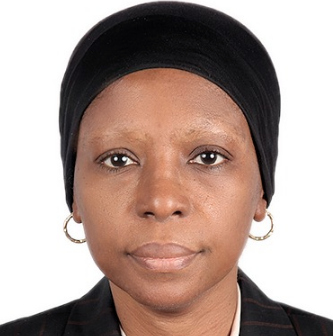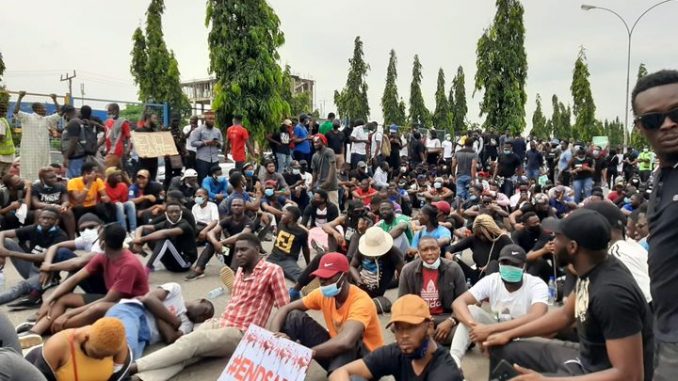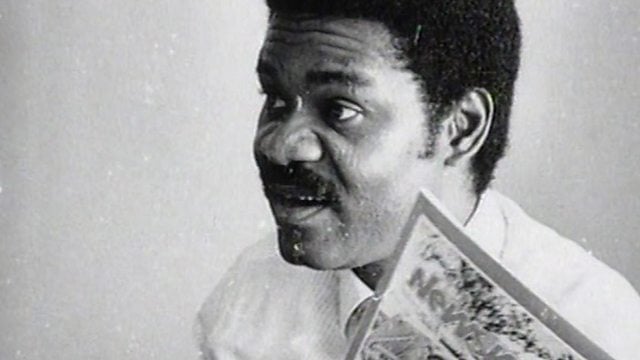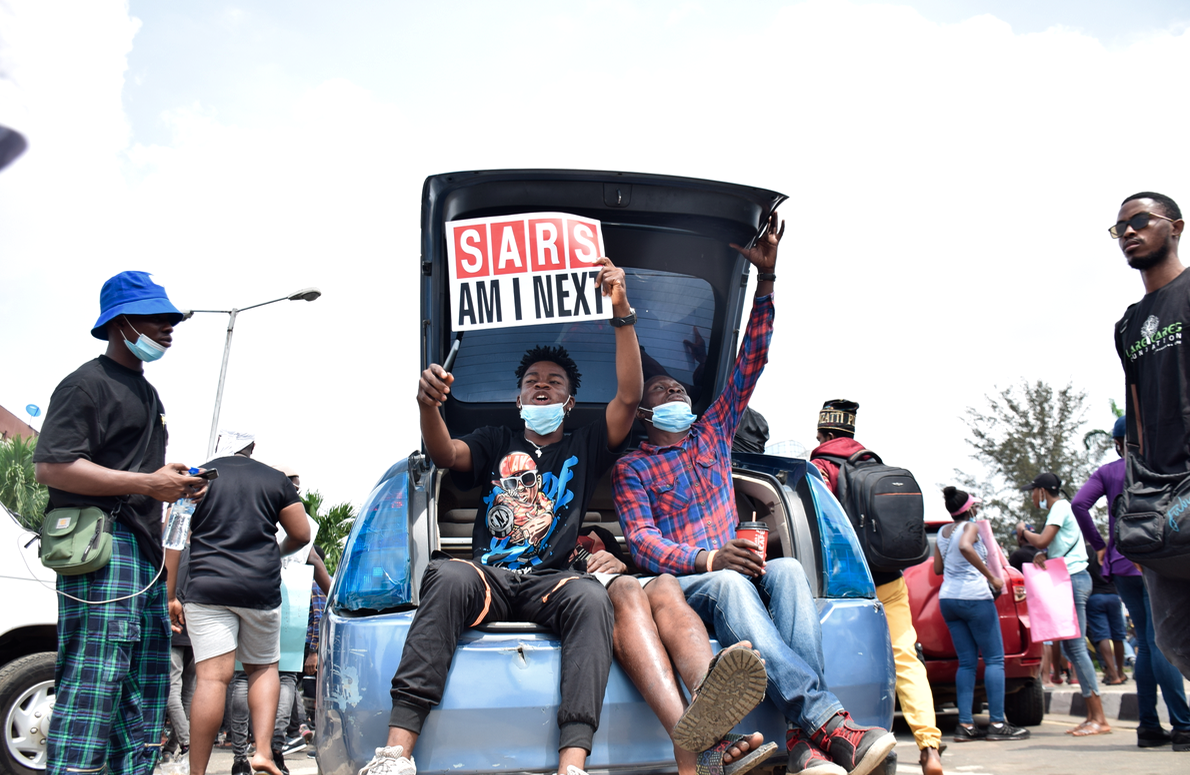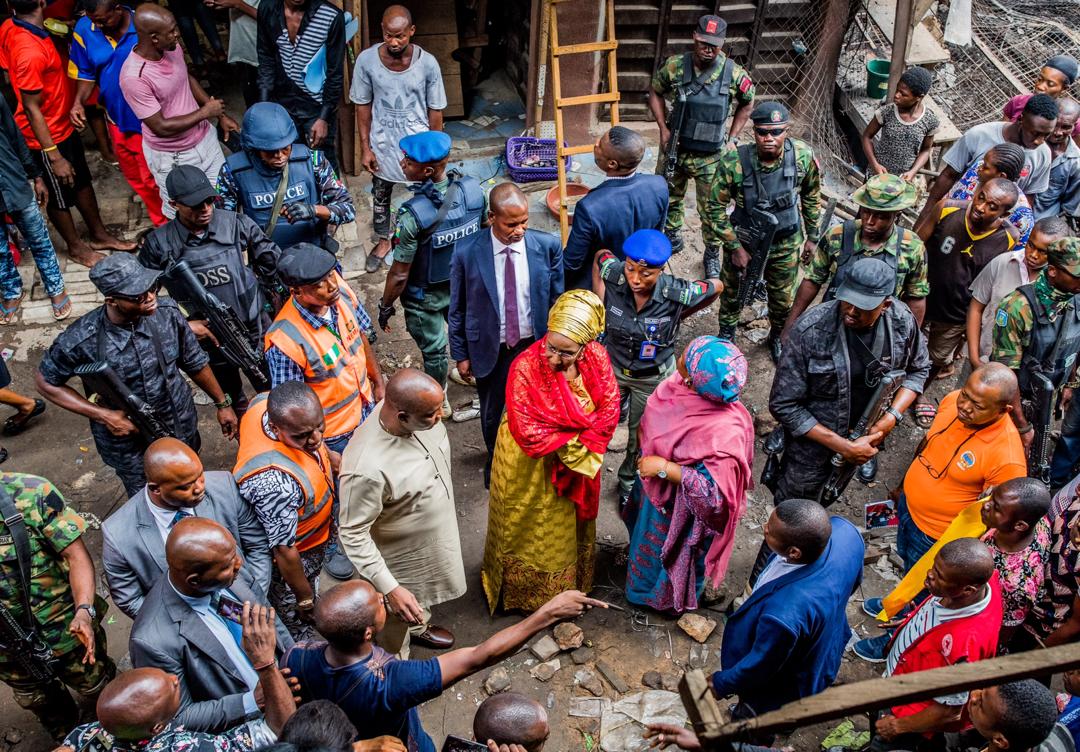Nigeria recently celebrated sixty years of independence. It was a time for deep reflection on the numerous opportunities Nigerian leaders missed to improve the quality of life of the majority. Therefore, it is not surprising that the strong dissatisfaction with the quality of life and the scarcity of opportunities in Nigeria have culminated with youths taking to the streets, demanding an end to police brutality and better governance.
That the police have been a source of pain, rather than succour, to Nigerians cannot be disputed. However, contrary to popular perception, this government has since started the process of improving the performance and effectiveness of the Nigeria Police Force (NPF). First, the President approved an increase in salaries of the police in 2019, to align it with that of other security forces. This can be seen by examining the allocation to police salaries in the 2018 budget compared to the 2021 budget. In the 2018 budget, the allocation to salaries of police was N289 billion. Meanwhile, in the 2021 budget, which is currently at the National Assembly for passage, the allocation is N417 billion, that is an increase of 44%.
Second, the government commenced regular recruitment into the NPF in 2016. Prior to 2016, the last recruitment of constables into the NPF was in 2011. This created a huge vacuum as frontline junior police officers retired and others died on duty without replacement. Since 2016, the current government has approved an annual recruitment of constables. This is despite the unfortunate actions by the Police Service Commission to attempt to scuttle the already completed 2019 recruitment and to stall the 2020 recruitment,which wereboth approved by the President.
Third, the government passed into law the Nigeria Police Trust Fund Act,to address police funding challenges. The Fund came into effect this year and funds are allocated to it by the Federation Account Allocation Committee at their regular monthly meeting. So far this year, the Fund has received an average of N2.63 billion monthly and is on track to receive at least N30 billion in 2020. The Fund is meant to address police training and other needs that will improve its functioning. The Fund, is thus timely,and if properly utilised will help address some of the problems bedevilling the police.
Advertisement
Hopefully, the leadership of the police and the government will see the current protests as a catalyst for even more deep reforms to improve the performance of the police.
The second issue that has arisen from the protests is the frustration felt by Nigerian youths due to high youth unemployment in Nigeria. The irony is that this government has done more to address youth unemployment than any other government. Though obviously more needs to be done. First, it created the Social Investment Program (SIP) in 2016. Since inception, over one trillion Naira has been released to the program and hundreds of thousands of young Nigerians have participated in the program. To put it in context, the N400 billion allocation to the SIP in the 2021 budget is almost as high as the N417 billion allocation to cover the salaries of the entire police force in 2021.
Second, the government created the Special Public Works Program to be managed by the National Directorate of Employment. A pilot was carried out from February to April 2020 in eight States. The program targets unemployed youths between 18 and 30 years of age and has no minimum educational requirement. Following the outbreak of Covid-19, the government extended the program to all States and FCT. The program will provide three months temporary employment to 1,000 persons in each Local Government for a total of 774,000. Again, this is the first time any government is targeting the unskilled with such a massive intervention.
Advertisement
Third, in the middle of the protests, the government opened the portal for application for funds under the National Youth Investment Fund. The N75 billion Fund is part of the covid-19 Economic Sustainability Plan. The Fund will provide low cost loans to businesses owned by young entrepreneurs. This is another opportunity for young entrepreneurs to obtain low cost funds of between N250,000 to N3 million to start or expand their businesses. This is in addition to the Farmermoni, Tradermoni and Marketmoni loans targeting farmers and small businesses.
The above notwithstanding, more needs to be done to deal with the current high youth unemployment. Below are some ideas.
The largest employer of labour in Nigeria is the private sector, which employs almost 90% of Nigerians. Therefore, interventions that can help the private sector expand and employ more are very critical to reducing unemployment. Despite strides made in improving the business climate, multiple levies and regulatory over reach are still major problems. There is also a perception that the current government is not business friendly. This needs to change. The Presidential Enabling Business Council should be empowered to deal decisively with agencies and regulators that have poor record of service delivery and those that over reach their regulatory powers, to the detriment of the economy. The State Governments on their part need to work with the Local Governments to reduce,to the barest minimum,the number of levies charged on businesses.
The Ministry of Industry Trade and Investment and Ministry of Labour and Employment should consider engaging manufacturers and other large employers to discuss and agree on government interventions that will help create jobs. A consultative approach might yield better results as the private sector is in a better position to know what is impacting productivity of manufacturers and service providers. Following such discussions, government should aggressively implement the interventions agreed.
Advertisement
The Social Investment Program (SIP) has contributed to reducing youth unemployment, but it needs reform. Is the feeding program, which will gulp N139 billion in 2021, really impactful and necessary? Should such funds not be better utilised to increase the number of N-Power participants? Does the program really need to spend N19.3 billion on local transport or N7.3 billion on welfare package (for who?) or N4.4 billion on inspection and monitoring and evaluation or N3.6 billion on advertisements? That is a total of N34.6 billion on sundries. To put it in context, these sundry expenses are higher than the N29 billion allocated in the 2021 budget to Ministry of Justice including all its parastatals (NDLEA, Human Rights Commission, Council for Legal Education etc.). Reform to improve value for money is thus highly recommended.
The government should also consider making the Special Public Works Program a permanent program. This will help address youth unemployment among the unskilled. The program can also be expanded to accommodate 2,000 participants per Local Government (LG) in 2022, with a proviso that the second 1,000 will be available to states that agree to fund another 1,000 per LG, bringing the total to 3,000 per LG and 2.32 million nationally.
Another policy the government should consider is reducing the retirement age in the police and all security agencies to 50 for non-officers. Nigeria has a very youthful population and government should take advantage of this. Police constables and non-commissioned soldiers do the most difficult physical work in the forces. Reducing the retirement age will ensure the security forces have younger and more agile personnel on the frontlines. It will also open up immediately tens of thousands of vacancies for young Nigerians to join the forces. This will have the added benefit of making the reform of the police a lot easier as the new recruits will be exposed to the new normal and better training.
The most important changes that will impact labour productivity andimprove employment prospects of young Nigerians are polices that will improve the quality of primary, secondary and vocational education. The Federal and State Governments need to partner to improve public schools. Unless this happens, the employment opportunities and productivity of the majority of Nigerian youths will continue to be undermined due to poor quality basic education. Interventions that improve public schools are essential as the majority of Nigerian children still attend public basic schools. For example, in Kano State almost 90% of primary and secondary school students are enrolled in public schools.
Advertisement
Finally, the Federal Government should consider restructuring the Industrial Training Fund in a way that encourages firms to participate in providing apprenticeship to young Nigerians in manufacturing and other trades, such as mechanical repairs,electrical installation and construction. Japan and Germany, two industrial powerhouses, incentivise such programs and have, consequently, continued to be the leaders in industrial innovation and technology. Germany also has one of the lowest youth unemployment levels in Europe, despite being the most populous western European nation.
It was Greg Mills, who later co-authored a book with former President Obasanjo, who wrote in his book, “Why Africa is Poor”, that “the main reason why Africa’s people are poor is because their leaders have made this choice”. Nigerians agree and are now demanding better choices from their leaders. This is animportant first step ina long process, that will hopefully lead to a better life for most Nigerians.
Advertisement
Amina Ado is the Founder of Sana’a da Ilmi Foundation, a non-profit dedicated to improving the quality of public schools.
Advertisement
Views expressed by contributors are strictly personal and not of TheCable.
